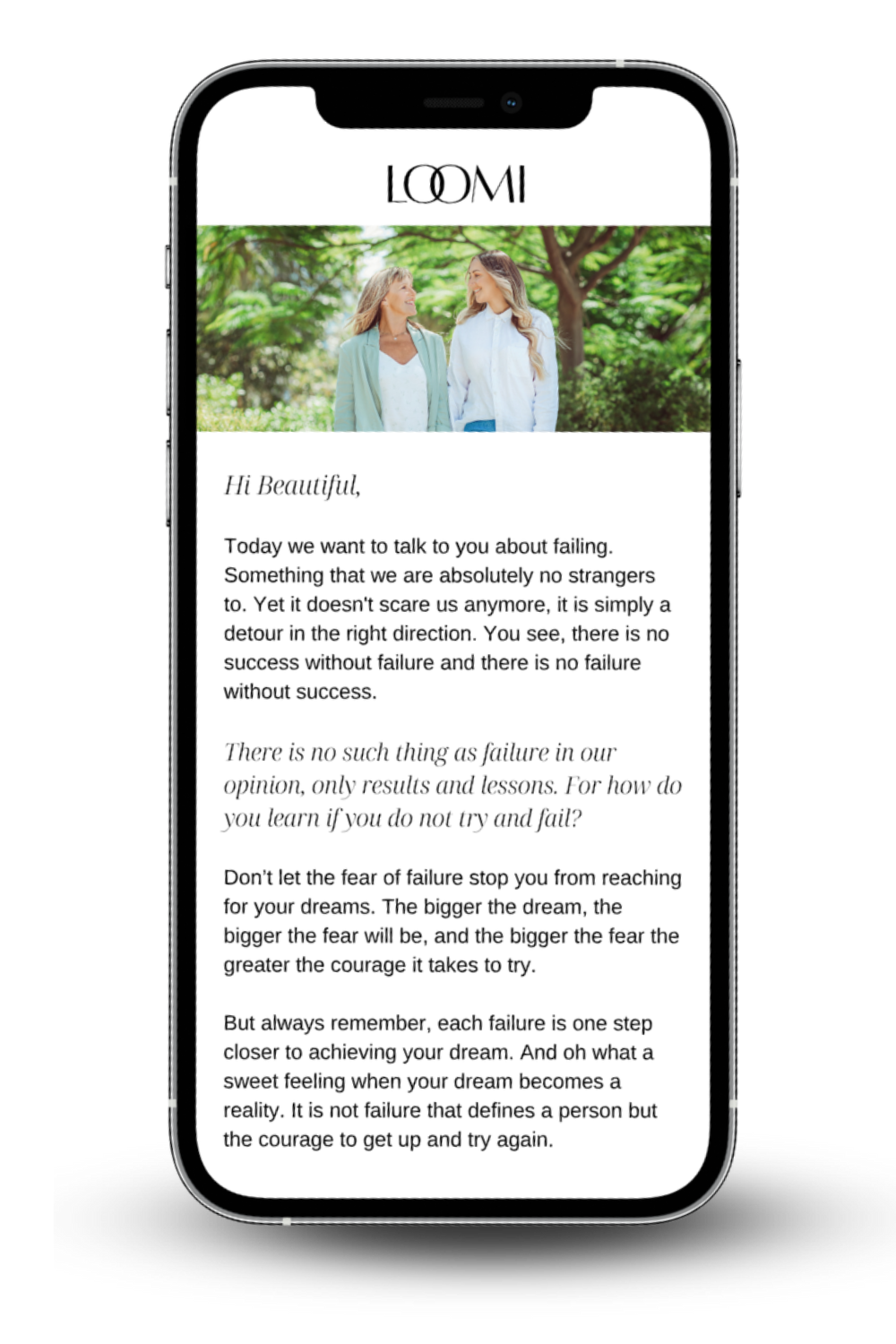Empowerment Through Setting Personal Boundaries
Empowerment Through Setting Personal Boundaries
Brene Brown –
Choose discomfort over resentment.
Be authentic, be courageous enough to put yourself first. The first step of I am enough is to create boundaries and say enough is enough.
Setting Personal Boundaries
One of the most powerful tools on your path to self-improvement is the art of setting personal boundaries.
As a recovering people-pleaser Setting Personal Boundaries is a topic that resonates with me. It’s something I’ve struggled with all my life, and I’m still working through what my boundaries should be and when I should be enforcing them.
So let’s have a look at what we mean by setting personal boundaries and why it’s so important.
Personal Boundaries are Crucial
Setting personal boundaries is a fundamental aspect of self-love, self-compassion and self-respect. Having healthy boundaries also plays a crucial role in your personal development and growth, empowering you to embrace your worth, protect your well-being, and to cultivate strong and meaningful relationships.
Setting boundaries isn’t about putting up walls or blocking out everyone and everything. It’s about respecting yourself enough to know what is good for you, and letting others know what is acceptable in your world. It is a commitment to yourself that you are worthy and that you matter.
When you allow others to take advantage of you, treat you with disrespect, or let you down, you end up feeling resentful, disappointed, or even angry. When you overcommit to others and stretch yourself beyond what you should, you can end up feeling overwhelmed and resentful of situations of your own making. A people-pleaser will often over-commit to help others because it makes them feel good to make others happy, even if it’s detrimental to their own goals, values and well-being. But this inevitably leads to resentment and burnout.
As hard as it is to start setting boundaries, once established, they are not only good for your well-being but also for everyone involved. Relationships are easier as expectations are clear and defined. They aren’t meant to punish others, they are there as a form of self-love, self-respect and well-being. If you set boundaries for yourself you will show up for others a more balanced, happy, healthy you.
Who of us Find it Hard to Set Boundaries, and Stick to Them?
It’s important to note that setting personal boundaries isn’t just a problem for specific personality traits. There are many factors, including upbringing, past experiences, and personal growth, that influence a person’s boundary-setting abilities.
However, here are a few personality types that find it harder than most to set and maintain personal boundaries.
The People Pleaser
As I’ve already mentioned, I’m a recovering people pleaser and I can tell you that there’s no better feeling than knowing you’ve made someone else happy. But it’s tiring living up to the expectation of others and yourself.
People who have a strong inclination to help and support others often find it challenging to set boundaries, fearing disappointing or upsetting others. As a result, we put our own needs on the back burner, setting a precedent for others to take advantage of us. We give them permission to abuse what we so freely give of ourselves.
The Empath
Empathetic people who deeply feel the emotions of others may have difficulty setting boundaries because they’re highly attuned to the needs and feelings of others. They tend to prioritise the needs of others, trying to appease and please them.
The Perfectionist
Perfectionists may find it hard to set boundaries because they have a strong need for order and control. They overcommit to tasks and responsibilities because, in their opinion, no one can do it as well as they do. They strive for perfection in all areas of their lives.
The Peacemaker
The peacemaker avoids conflict at all costs. So instead of setting boundaries they silently allow others to say things and get away with behaviours that are negative toward them. It’s easier to say nothing than to speak up for fear of conflict and confrontation.

What are Personal Boundaries?
Personal boundaries are not rigid walls that isolate you from others. Instead, they are flexible guidelines that allow you to engage with others while protecting your well-being. Setting and maintaining boundaries is a vital part of self-care and self-respect, and they are essential for maintaining healthy relationships, managing stress, and fostering personal growth.
Think of them as the invisible lines you set to define the limits of what is acceptable and respectful in your world and in how you allow others to interact with you.
Recognising the Need to Set Personal Boundaries
Recognising the need for boundaries is a positive step in your personal development. Boundaries are not selfish; they are a means of self-care, self-respect, and maintaining healthy relationships. It’s essential to reflect on the specific signs that apply to your life and take action to establish the boundaries that will support your well-being and growth.
So what are some of the signs that you need to Set Boundaries?
You Feel Overwhelmed
If you constantly feel overwhelmed, whether by work, family, or social commitments, it’s a sign that you may need to set time and emotional boundaries. Overcommitting and not protecting your personal time can lead to burnout.
You Feel Drained After Interactions
If interactions with certain people consistently leave you feeling emotionally or physically drained, it’s a sign that boundaries are necessary. Healthy relationships should leave you feeling energised, not drained.
You Experience Resentment
Ongoing resentment towards someone may be a signal that your boundaries are being crossed. If you’re consistently feeling taken advantage of or not valued, it’s time to establish clearer boundaries.
You Can’t Say No
If you find it challenging to say “no” to requests, favours, or commitments, it’s a sign that you may need to establish stronger boundaries with yourself. Being unable to set limits can lead to overextension, stress, and resentment.
Your Values Are Disregarded
When your values and beliefs are consistently disregarded or dismissed by those around you, it’s a clear sign that you need to assert your values and establish boundaries. Only when you do that will you get the respect you deserve.
You’re Ignoring Your Own Goals
When you find yourself consistently ignoring your own goals, aspirations, and needs in favour of others’ demands, it’s time to establish boundaries that prioritise your personal growth and development.
Setting and Maintaining Personal Boundaries
Effective boundary-setting involves clear communication, assertiveness, and self-awareness. It allows you to define your limits, and ensure that your needs are respected in interactions with others. It’s a skill that can be developed and improved to support your well-being and personal development.
Establishing boundaries can be challenging, especially with family and long-time friends. These relationships often come with established dynamics and expectations, making it difficult to introduce new boundaries. It’s akin to creating new habits, however, it’s essential for your well-being and personal growth to set and maintain boundaries even in these close relationships.
Maintaining boundaries in new relationships or situations is more of a personal battle. There’s no expectation from others, just an internal expectation of yourself and what’s best for you. When you enter into a new situation you have the ability to set the tone without any preconceived idea of who you are and what your boundaries are.
Remember, setting boundaries is an act of self-love and self-respect. Ultimately, the people who truly care about you will understand and respect your boundaries, even if it takes time to adjust to the changes.
How to Set Personal Boundaries with Others
The first step in setting boundaries with others is understanding yourself and what it is you need for you to live a happy life full of growth, self-empowerment, love and self-respect.
So, before discussing boundaries with others, take time for self-reflection. Understand your own needs, limits, and the reasons behind the boundaries you want to establish. This self-awareness will help you communicate your boundaries more effectively.
When you know what boundaries you want to set, communicate openly and honestly. Explain your reasons for setting these boundaries and the positive impact they will have on your well-being and the relationship. If you are setting new boundaries with family and friends, be empathetic and understanding of their perspective, too. When you change the way you allow others to treat you it will likely be received negatively at first. You are not only setting your boundaries, you are changing the relationship dynamic, one where they once had an advantage over you.
Once you have communicated your boundaries, stay consistent so that people understand you are serious about them. Stating your boundaries and not following through will only lead to confusion and regression back into old behaviours.
Change takes time, and not everyone will immediately adapt to your new boundaries. So, be patient and understanding as people adjust to the changes in your relationship dynamics.
In some cases, despite your efforts, others may continue to disregard your boundaries and show disrespect for your needs. In these cases, it may be necessary to reevaluate the relationship and consider distancing yourself. Let’s be honest, if they don’t respect you enough to respect your boundaries, you don’t need them in your life.
How to Set Personal Boundaries with Yourself
Setting boundaries with yourself sounds easy doesn’t it? But it takes self-awareness and understanding of what your values and goals are, and constantly checking in with yourself. Once you are aware of who you want to be, what you want to achieve and what it’s going to take to become all that you can be, you can start to set healthy boundaries.
The first step is to practice saying “no” when you need to. It’s important to decline commitments or requests that don’t align with your values or that would overextend you. Be mindful of how you allocate your time and energy. Set specific time boundaries for work, personal time, and social engagements to avoid overcommitting.
Clearly define your personal and professional goals and priorities. Align your activities and commitments with these goals to ensure you’re working toward what matters most to you.
Stay true to your values, and don’t compromise them for the sake of others. Your values are integral to your identity, and respecting them helps maintain your self-integrity.
Continuously practice self-awareness by checking in with yourself to ensure you are honouring your boundaries and self-care routines.
Periodically reassess your boundaries to ensure they are still aligned with your evolving needs and priorities. Make adjustments as necessary.
Setting and maintaining boundaries is an ongoing process. Be patient with yourself, and if you slip up or face challenges, forgive yourself and refocus on your boundaries. Just like creating habits, it takes time.
It’s Time to Put Yourself First
Remember that setting boundaries for yourself is a form of self-love and self-respect. It allows you to protect your well-being, maintain your autonomy, and prioritise what truly matters to you. By actively setting and enforcing boundaries, you can foster personal growth, reduce stress, and create a more balanced and fulfilling life.
It’s time to put yourself first, take back your power, and create the life you deserve!

LOOMI letter
Get the good stuff delivered directly to your inbox
LOOMI letter